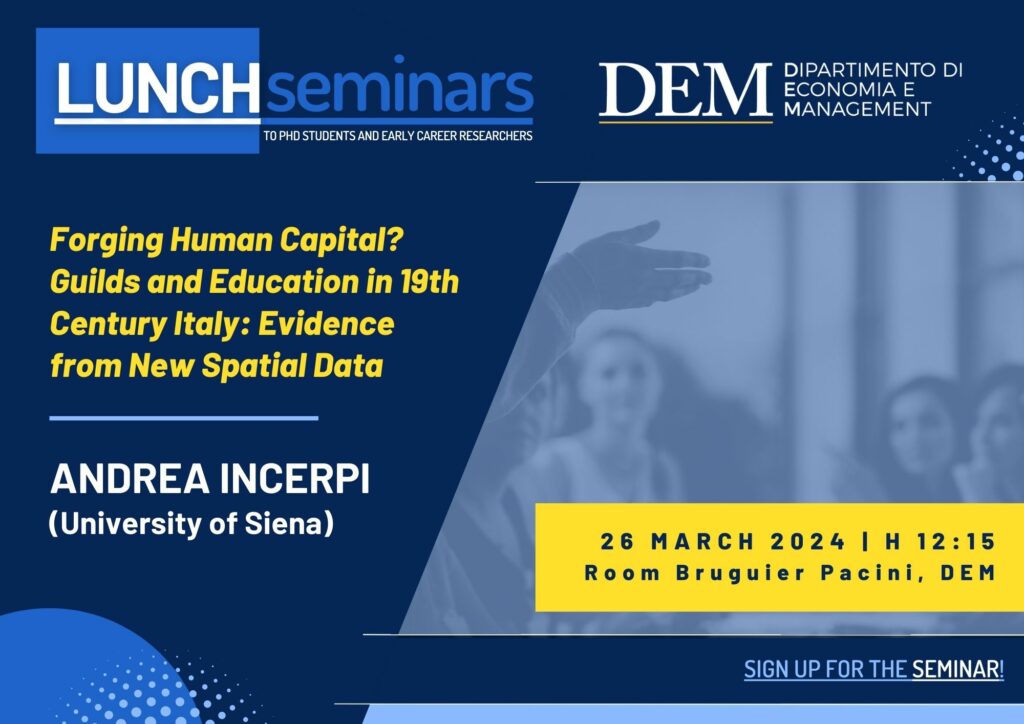Date: Tuesday, 26 March 2024, at 12:15 pm
Venue: Room Bruguier Pacini, DEM
Speaker and Title:
Andrea Incerpi (University of Siena)
Forging Human Capital? Guilds and Education in 19th Century Italy: Evidence from New Spatial Data
Abstract:
The questions of whether – and how – guilds and formal education are positively or negatively related remains empirical, and mostly under-researched: the only recent example of a large study on the role that guilds played in terms of long-term growth has been provided by Berger and Jensen (2023), who argue that the abolition of guilds is associated with an acceleration of economic growth in 18th-century Sweden. Therefore, a clear research gap emerges, concerning the need for empirical analysis on the role that guilds played as potential engines of human capital formation. Are guilds associated with more rapid human capital formation and better access to schooling (particularly VTE) in the long run, across countries and within them?
We focus on Italy to answer this question. Italy is an ideal case to this purpose due to the long-lasting presence of guilds over time, from the Middle Age to the early 19th century, and the large spatial differences that concern the country both before and after unification – in terms of both the number and types of guilds, as well as the late-19th century spatial distribution of mass education and VTE. We elaborate a new dataset on Italian guilds from existing sources, and link it to new data on mass education and VTE, as well as existing data on patents, at the municipal level of analysis.
By doing so, this paper investigates whether guilds and apprenticeship forged the basis for Italy’s technical schooling and, more general, human capital formation in the second half of the 19th century – against the alternative hypothesis that they hindered their diffusion and the formation of skills. The analysis aims to shed light on the issue in two different, complementary ways: firstly, by underlining macro-regional differences (i.e. pre unitary states borders) over time to look at the continuity or discontinuity of the technical-skill diffusion before and after the abolition of guilds; secondly, by exploring differences at the municipality level, applying the principles of spatial analysis. Some final case studies (qualitative analysis) will explain what we can deduct from the institutional continuity or change from guilds system to boards of trade (camera di commercio) and technical schools.
Download area

